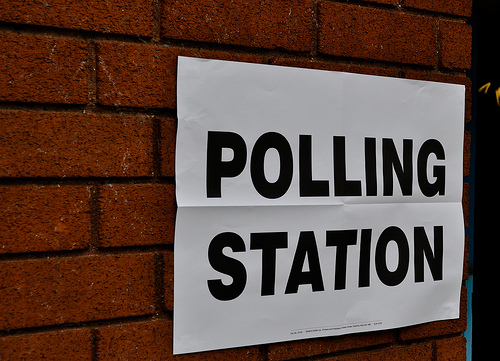Last night was a huge win for the Republican Party. Not only did the GOP take control of the Senate, expand its grip on the House, and win nearly every Governor’s race that was reasonably in play (and a couple that weren’t), they did so quickly and decisively, racking up huge leads in races that most pundits had predicted being squeakers. Today those same pundits are proclaiming that America has spoken loudly and clearly in rejection of President Obama and the liberal agenda. What is unclear is why, then, they also passed so many liberal-leaning laws yesterday.
It appears folks entered their ballot booths a little bit confused — or maybe just uninformed. In state after state, voters overwhelmingly passed policies opposed by the Republican politicians they also elected. For example, voters in four states passed minimum wage hikes and in all four of those states, voters also sent Republicans to represent them in the Senate. In three of the four, they kicked out Democratic incumbents to do so. And these weren’t generic Republicans — in South Dakota, voters passed a minimum wage increase by an 11-point lead and overwhelmingly elected Mike Rounds, who had vociferously campaigned against the increase. A fifth state, Illinois, passed non-binding measures supporting a minimum wage increase and a tax on millionaires, all while replacing their Democratic governor who supported both with a Republican one who opposed both.
Similarly, in Alaska, voters replaced Democratic Senator Mark Begich with Republican Dan Sullivan, while also passing a ballot measure to decriminalize marijuana — which Sullivan opposed. Fifty-eight percent of Florida voters supported a medical marijuana initiative yet re-elected Governor Rick Scott, who opposes medical marijuana (the Florida initiative failed to pass, as it needed 60% approval to succeed). Finally, in Colorado, voters rejected an anti-choice ballot initiative yet replaced a pro-choice Democratic Senator with an anti-choice Republican one after a campaign in which reproductive rights were a major issue. The list goes on, but I won’t bore you.
What gives? Why did voters across the country so flagrantly vote for candidates opposed to the policies they supported? Was there just so much anger at Obama that policy didn’t matter? Is there so much anti-incumbent sentiment that voters were willing to overlook a few disagreements in opinion? Or were voters just uninformed about where candidates stood on the issues? I don’t have an answer, but I think it’s a footnote worth paying attention to that in the “Republican Wave of 2014,” the ballot measures that voters approved were overwhelmingly liberal.









